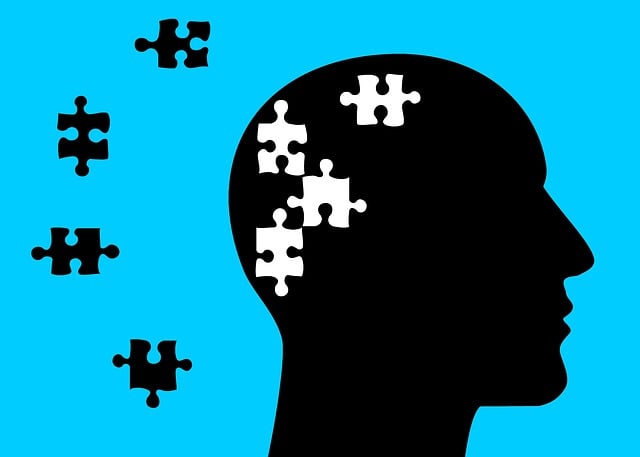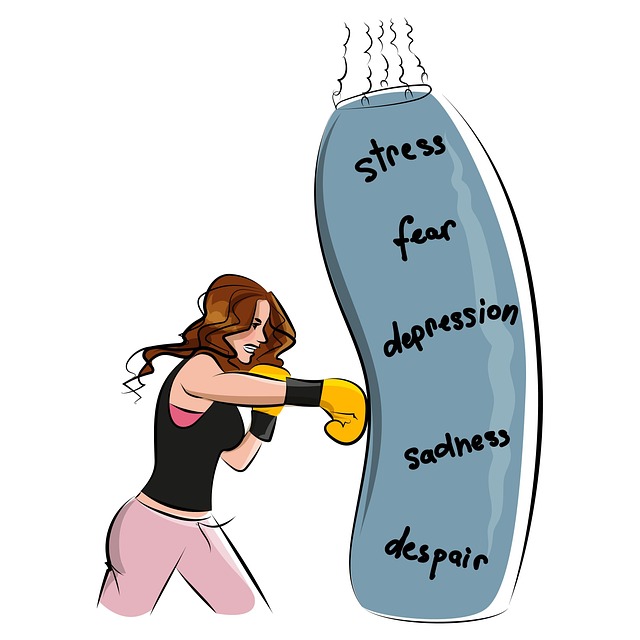Denver Exposure and Response Prevention (E/RP) Therapy is an effective, evidence-based approach for managing anxiety disorders like OCD and PTSD through gradual exposure to fears and learning healthy response strategies. Integrating E/RP into mental wellness coaching programs empowers clients by challenging negative thoughts and behaviors, improving coping mechanisms, mental health, and building resilience against various mental illnesses and associated stigma. This structured process combines techniques like mindfulness, cognitive-behavioral methods, physical activity, and social support for tailored, inclusive frameworks that address both symptoms and underlying causes. Measuring success involves tracking improvements in clients' mental health symptoms, coping skills development, and overall well-being using pre-post assessments and regular check-ins.
Mental wellness coaching programs have emerged as a powerful tool for promoting resilience and well-being. This article delves into the development of such programs, highlighting Denver Exposure and Response Prevention (E/RP) Therapy as a foundational approach. We explore key components, practical strategies, and integration of E/RP techniques in coaching sessions. Additionally, we discuss measurement and continuous improvement to ensure these programs deliver tangible results. By understanding and implementing these principles, mental wellness coaches can create transformative experiences for their clients.
- Understanding Denver Exposure and Response Prevention (E/RP) Therapy: A Foundation for Coaching Programs
- Designing Effective Mental Wellness Coaching Programs: Key Components and Strategies
- Integrating E/RP Techniques into Coaching Sessions: Practical Applications
- Measuring Success and Continuous Improvement in Mental Wellness Coaching Programs
Understanding Denver Exposure and Response Prevention (E/RP) Therapy: A Foundation for Coaching Programs

Denver Exposure and Response Prevention (E/RP) Therapy is a highly effective evidence-based approach that forms a solid foundation for mental wellness coaching programs. This therapy focuses on helping individuals confront and manage their fears by gradually exposing them to stressful situations or triggers while teaching them adaptive response strategies. E/RP is particularly beneficial for those dealing with anxiety disorders, such as obsessive-compulsive disorder (OCD) and post-traumatic stress disorder (PTSD).
By incorporating E/RP techniques into coaching programs, mental health professionals can empower clients to challenge negative thoughts and behaviors. This involves guiding them through a structured process of exposure to their fears, coupled with cognitive restructuring and behavioral experiments to replace unhelpful responses with healthier alternatives. Such tailored interventions contribute significantly to the development of robust Mental Wellness Coaching Programs, aiming to enhance individuals’ coping mechanisms and overall mental health while also fostering resilience in the face of various mental illnesses and their associated stigma (Mental Illness Stigma Reduction Efforts).
Designing Effective Mental Wellness Coaching Programs: Key Components and Strategies

Designing effective mental wellness coaching programs requires a structured approach that combines evidence-based techniques with an emphasis on individual needs and cultural sensitivity in mental healthcare practice. One powerful methodology to consider is Denver Exposure and Response Prevention Therapy (ERP), which has proven successful in treating various anxiety disorders. This strategy involves guiding clients through gradual exposure to fearful or stressful situations, helping them develop healthier response patterns and reduce anxiety over time.
Incorporating Stress Reduction Methods tailored to diverse populations is another vital aspect. Coaching programs can offer a range of tools for stress management, from mindfulness practices and cognitive-behavioral techniques to physical activity and social support strategies. By adapting these methods to respect cultural differences and incorporating them into a holistic coaching framework, practitioners can ensure that their programs are inclusive and impactful, addressing not only symptoms but also the underlying factors contributing to mental wellness.
Integrating E/RP Techniques into Coaching Sessions: Practical Applications

Incorporating Exposure and Response Prevention (E/RP) techniques into mental wellness coaching programs offers powerful tools for managing anxiety and phobias. This evidence-based approach, pioneered in Denver, encourages individuals to confront fears in a safe environment, gradually reducing avoidance behaviors. During coaching sessions, E/RP can be integrated by creating structured scenarios where clients are exposed to their triggers, learning healthy coping strategies as they go. For instance, a coach might guide a client through imagined or real-life situations, helping them understand and modify their responses.
By combining this technique with traditional coaching methods, practitioners can design comprehensive Mental Health Education Programs that address both the symptoms and underlying causes of mental health issues. This holistic approach, supported by research in Mental Health Policy Analysis and Advocacy, aligns with the growing need for effective Crisis Intervention Guidance, fostering environments where individuals feel empowered to take charge of their mental wellness.
Measuring Success and Continuous Improvement in Mental Wellness Coaching Programs

Measuring success and driving continuous improvement are paramount in mental wellness coaching programs. Evaluating the effectiveness of these initiatives involves a multi-faceted approach that goes beyond simple participant satisfaction surveys. Key performance indicators (KPIs) should include tracking improvements in clients’ mental health symptoms, coping skills development, and overall well-being. This can be achieved through pre-post assessments using validated psychological tools, as well as regular check-ins to monitor progress and identify areas needing further support.
In the context of Denver Exposure and Response Prevention (ERP) Therapy, for instance, measuring success could involve assessing reductions in anxiety levels, improvements in exposure thresholds, and enhanced coping strategies. Community outreach program implementation and mental health education programs design can also benefit from this data-driven approach, allowing for adjustments to better meet the evolving needs of participants.
The development of mental wellness coaching programs, enriched by Denver Exposure and Response Prevention (E/RP) Therapy techniques, offers a promising approach to enhancing psychological well-being. By integrating key components such as goal setting, skill acquisition, and supportive feedback, these programs can effectively equip individuals with the tools needed to manage stress, anxiety, and other mental health challenges. Continuous improvement, driven by measuring success and gathering participant feedback, ensures that these coaching initiatives remain impactful and tailored to evolving needs. Through practical applications of E/RP techniques, mental wellness coaching emerges as a powerful tool for fostering resilience and promoting lasting positive change.












